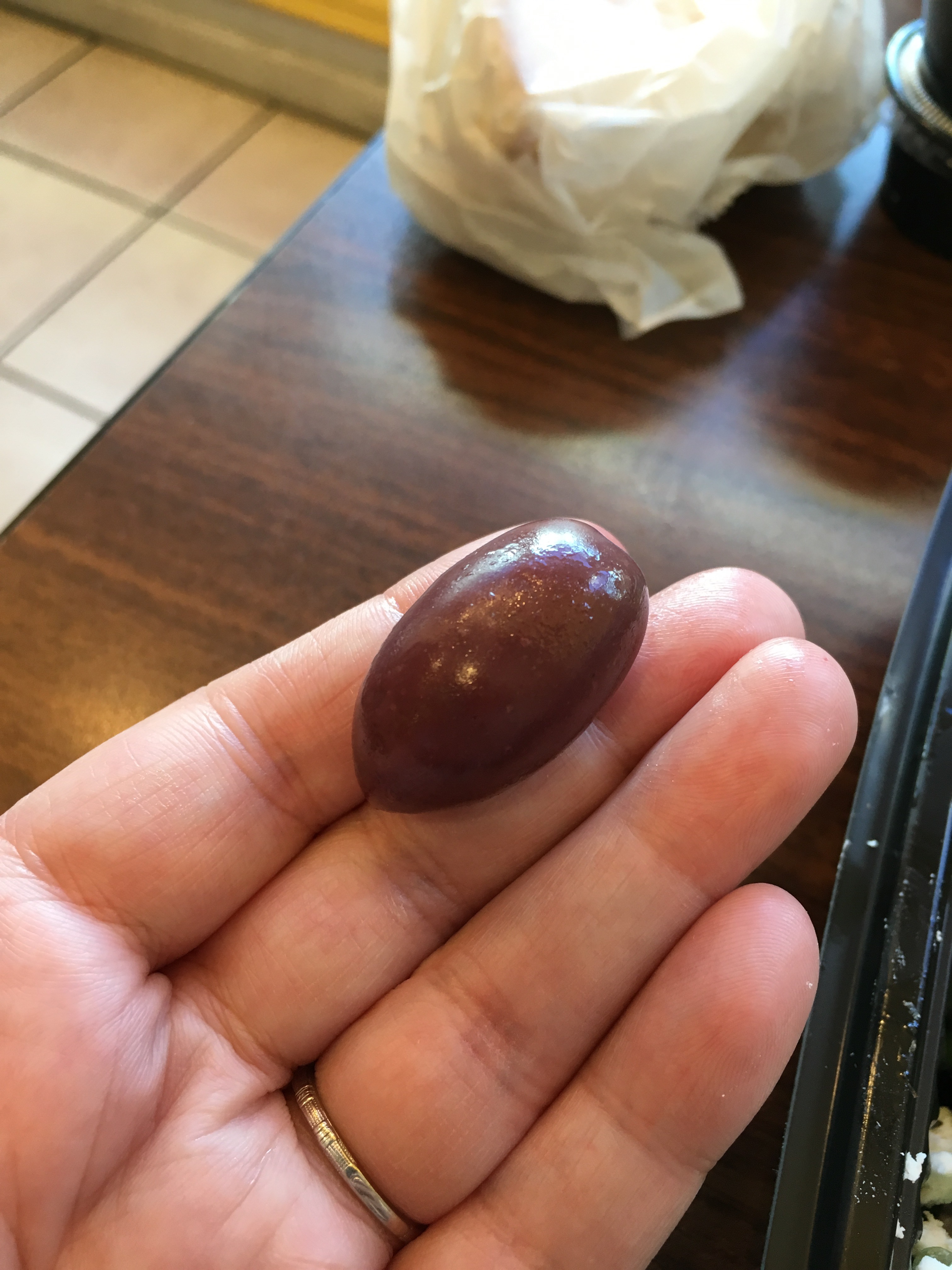The first word that comes to mind when I think of a Kalamata olive is bracing. They are salty and tart and bitter all at once, causing your mouth to pucker a bit as you bite into the meaty purple fruit. They are not a mild olive, but if you like these flavors, they can be incredibly addictive.
Kalamata olives are one of the more common olives that people encounter in the United States, often at a Greek restaurant. They might be seen on top of a Greek salad, like this:

Where do they come from?
Kalamata olives are named for an area in southern Greece, on the Peloponnese peninsula, near the ancient city of Sparta. In the US, we usually see all olives of this variety labeled as Kalamata, but if you are purchasing these olives in the EU, they must be from that specific region in southern Greece, or they are labeled as Kalamon olives instead. Most of the olives sold in the US as Kalamata are imported from Greece, although this variety of olive is grown in other regions as well, including in California.

What makes them special?
Unlike many other varieties of olives, Kalamata olives are prepared for eating, rather than for oil. They are picked once ripe, in December of January, which gives then a purple to black color. They are usually cured in a brine made with red wine vinegar, which gives them their distinctive flavor. Kalamata olives retain some of the polyphenols even after processing, which makes them one of the more bitter olives. The olives are large and meaty, and very satisfying to eat with a variety of foods.
If you are not sure if you like olives, or have never tried this variety, Kalamata olives are very accessible, as you will find them at many restaurants and olive bars, and you won’t need to buy an entire jar. If you love the flavor, and want something even stronger, I will write about some of those varieties in the future. If this variety is too bitter, and you are looking for something more mild and buttery, I will write about those as well. Leave a comment if you want to share your thoughts about Kalamata olives or what you would like to read about next!
